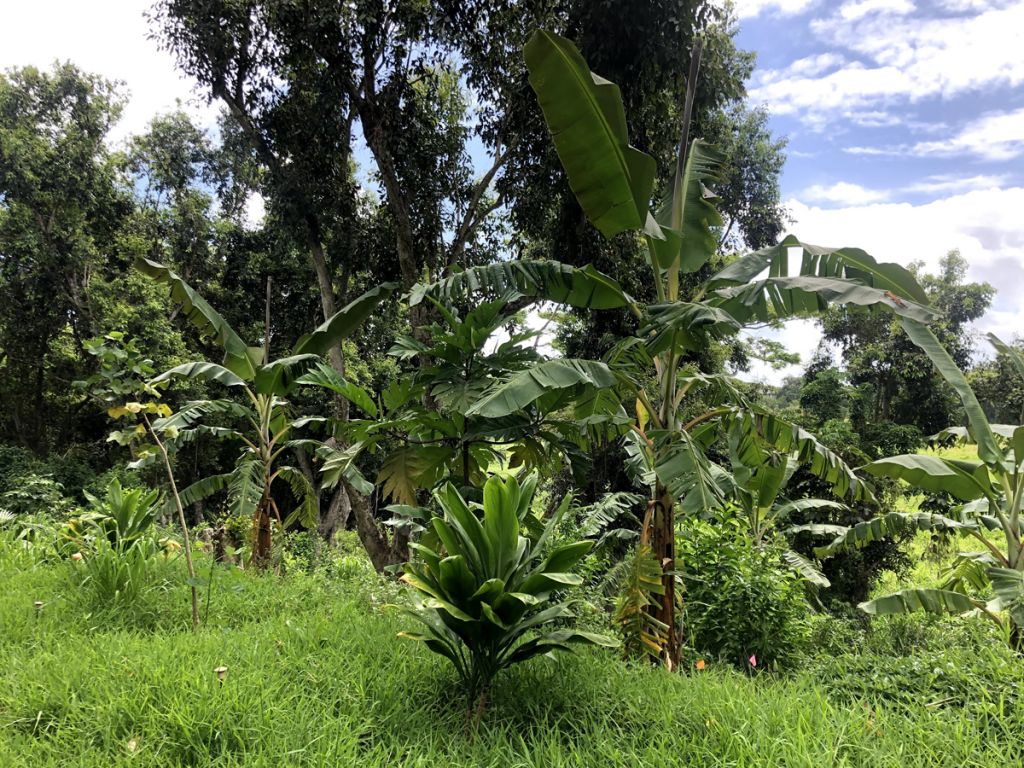Enhancing social-ecological resilience and ecosystem services through restoration of coastal agroforestry systems
PRINCIPAL INVESTIGATOR: Leah Bremer
Co-INVESTIGATORS: Tamara Ticktin, Clay Trauernicht, Natalie Kurashima
PI-CASC Graduate Scholar: Tressa Hoppe
Research Track: Interdisciplinary

Agroforestry systems, along with loʻi kalo and other systems, were abundant in historical Hawaiʻi, and there is great interest in their restoration today. Agroforestry includes any land-use system that includes trees and integrates them with crops and other tended and harvested plant or animal species. This project aims to better understand the potential for community-based agroforestry to help Hawaiʻi respond to and adapt to climate change.
At the pae ʻāina (Hawaiian Islands) scale, we are using models to better understand where restoration might lead to the greatest benefits for coral reefs and groundwater supplies under climate change. We are also gathering on-the-ground data to evaluate changes over time with the restoration of a community-based agroforestry system, in collaboration with the non-profit Kākoʻo ʻŌiwi, in Heʻeia, Oʻahu. Measurements include carbon sequestration and indicators of social-ecological resilience such as biodiversity, soil health, and community connection to place. Finally, in response to input from agroforestry practitioners across Hawaiʻi, we are co-developing and fostering a knowledge exchange for community-based agroforestry across multiple islands. The exchange will focus on current challenges and strategies to adapting to impacts of climate change, including increases in drought, fire, and flooding.

